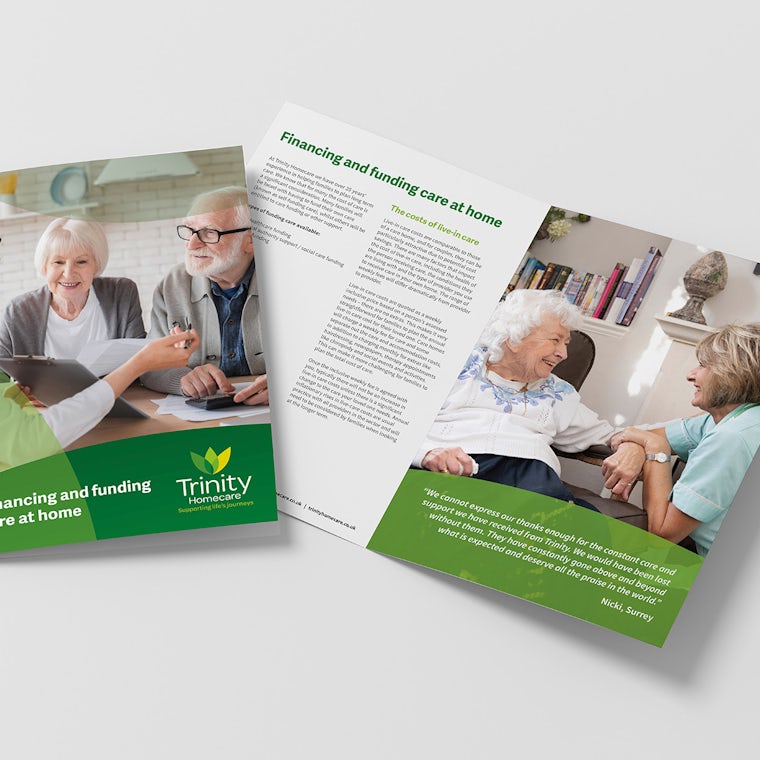| Healthcare funding | Benefit entitlements |
|---|
If you are looking to receive live-in care, you may be eligible for some funding from your local authority.
Means test
The provision of adult social care funding is means tested. Means testing is the method by which your financial eligibility to receive funding for your care is assessed. It takes into consideration any regular income you may receive and any capital assets you own, which includes savings, investment and property.
Your home will not be counted as an asset if it remains occupied by your partner or spouse, a close relative who is either over the age of 60 or incapacitated, a relative younger than 16 whom you are legally obliged to support, or an ex-partner if they are deemed a single parent.
There are several factors that affect the outcome of means testing for care funding in the UK:
- A person’s age
- Location within the UK
- Type of care provision sought – for example moving to a care home or receiving live-in care at home
- The discretion of the awarding local authority
Your capital and what you will need to pay
Over £23,250
You must pay the full amount of care yourself.
Between £14,250 - £23,250
The local authority will fund part of your care, and you will be expected to pay the rest of the fees.
Less than £14,250
The local authority will provide full social care funding, which will not be included in the means test.
Care needs assessment
You will also need to have a care needs assessment to work out what type of help or support you need with your care, and how you may receive that type of care. The assessment will be provided by the social services department of your local council. Regardless of your income, savings, or whether the local authority think you are eligible, the council must give you a care needs assessment.
Having the assessment gives you or your loved one the opportunity the discuss in detail what type of support you need with a healthcare professional. No matter what level of care you need to receive, the healthcare professional will help you find the right support.
If you or your loved one is being cared by a close relative or family friend as an unpaid carer, they will be able to have a carers assessment, to see whether they can receive any support to continue caring for their loved one.
What will be considered during a care needs assessment?
- Your health, and what you can, can’t, or struggle to do
- Your cultural and religious background and support network
- Your current living arrangements
- How you’d like to be supported
- Information about your needs from your carer, if you want them to be involved in your assessment
What steps do I take to see if I can access funding from my local authority?
There are a series of steps involved in securing social care funding.
- You will need to discuss your care needs with your local GP or health consultant. If you are eligible for funding, you will be recommended to contact the adult services department
- Adult services will arrange an assessment for your care needs and request a GP report to feed into this process
They will produce a detailed report based on your care and health needs - A financial assessment (means test) will be undertaken to determine your ability to pay the cost of the care you need. Savings, income and assets are all considered in the process
- Depending upon your means test and how it aligns with social funding thresholds, you will be deemed eligible either for full or part social care funding, or ineligible for any financial assistance from the local authority
Personal budgets and direct payments
If you’re eligible for adult social care funding, you can either ask the local authority to manage your budget and find the suitable care you need, or you can opt to receive a personal budget with direct payments of funds to yourself for you to make your own care arrangements.
A personal budget refers to the overall cost of care and support that your local authority has determined, through means testing, to be available to you. Direct payments are a funding choice in personal budgets, whereby you receive the payment to manage and organise your own care arrangements, whether that is in your own home or from moving into residential care.
Direct payments can be used to pay for care services, equipment or activities that meet your social care needs either from an individual or an organisation.
If you manage your own personal budget, you can choose the provider you wish to receive care from, whereas if the local authority manages it you will be restricted to using a provider from their preferred list.
Financing and Funding Care Information
- The costs of live-in care
- Self-funding care
- Healthcare funding
- Local authority funding
- Benefit entitlements
| Healthcare funding | Benefit entitlements |
|---|

Our Full Funding Care Guide
Download our full Financing and Funding Home Care Guide for free. Everything you need to know about how to fund care for your loved one in one handy pdf which you can print out or read digitally on your computer, smart phone or tablet.
Download for free












